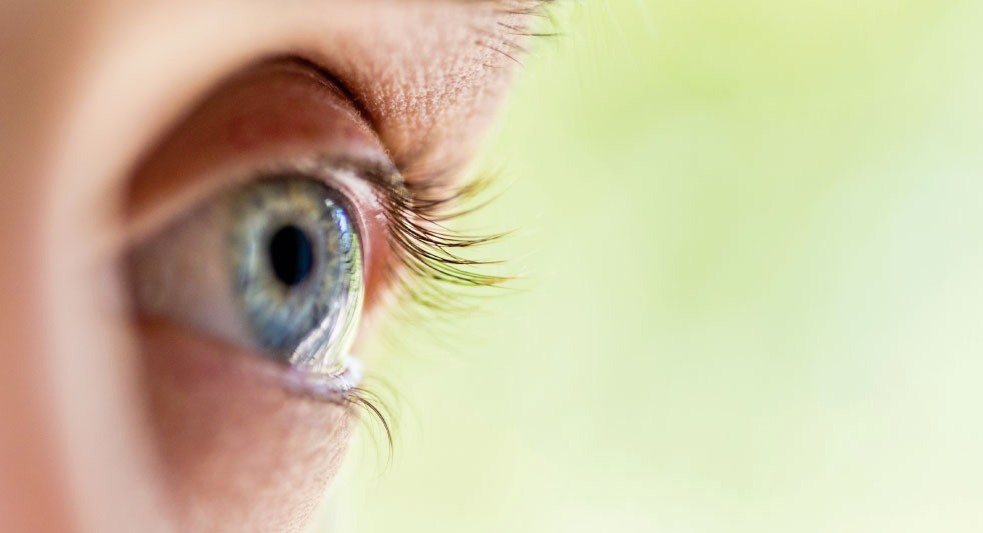If you have been told by your doctor that you have mild cataracts, it is important to learn as much as possible about them. Cataracts are a common eye condition that can cause vision problems. In most cases, cataracts can be treated successfully with surgery. In this blog post, we will discuss the causes and symptoms of mild cataracts, as well as treatment options.
Contents
What Are Mild Cataracts?
 Mild cataracts are a type of vision impairment caused by the natural aging process. It is also known as a clouding of the lens in the eye that causes blurred vision. The exact cause is unknown, but it is thought to be related to changes in proteins and lipids in the eye’s lens over time.
Mild cataracts are a type of vision impairment caused by the natural aging process. It is also known as a clouding of the lens in the eye that causes blurred vision. The exact cause is unknown, but it is thought to be related to changes in proteins and lipids in the eye’s lens over time.
It is basically a clouding of the eye lens, which makes it difficult for light to pass through and can cause blurred vision. When diagnosed early, mild cataracts are often treatable. However, if left untreated, they can worsen over time and eventually lead to blindness.
Types
There are three types of mild cataracts:
- Nuclear Cataract: This type of cataract affects the center of the lens and usually occurs in older adults. It can cause yellowing or browning of the lens, which can cause blurred vision.
- Cortical Cataract: This type affects the edges of the lens and can cause white streaks or a cloudy appearance. It typically occurs in people aged 40 to 60.
- Subcapsular Cataract: This type affects the back of the lens and usually occurs in people with diabetes or those taking steroid medications for long periods of time. It can cause fuzzy vision or trouble seeing at night.
It is believed that these types of cataracts can be difficult to detect in their early stages, as they often do not cause severe symptoms. For this reason, it is important to have regular eye exams and get tested for cataracts if any vision changes are noticed.
What Are Some Signs To Look For?
While it is not easy to identify the presence of mild cataracts, the following symptoms can be helpful in spotting them:
- Blurry or hazy vision
- Glare and starburst effects around lights
- Poor night vision
- Double vision
- Increasing difficulty with reading at normal distances
- Change in color perception
The symptoms of mild cataracts are also confusable with other eye issues like nearsightedness, farsightedness, and astigmatism. It is important to seek out a professional diagnosis from an optometrist or ophthalmologist who can provide comprehensive eye exams.
What Causes The Mild Cataracts?
It might surprise you to know that mild cataracts are actually quite common, and can be caused by a variety of factors. Some of the most common causes include:
- Age-related changes: This is the most common cause of mild cataracts, and is simply due to the natural aging process. As you get older, your lens can become less clear and develop areas of cloudiness or haziness that can lead to a slight decrease in vision.
- Ultraviolet radiation: Prolonged exposure to ultraviolet (UV) light is thought to cause cataracts in some people.
- Diabetes: People who have diabetes are more likely to develop mild cataracts, and those with poorly controlled diabetes are even more likely to experience this.
- Trauma: If you suffer from a trauma or injury to the eye, it can sometimes lead to the development of mild cataracts.
- Medication: Some medications, such as corticosteroids and other steroid treatments, are thought to increase the risk of developing mild cataracts.
All in all, mild cataracts can have a variety of causes and it is important to understand the potential risks. It is important to talk to your doctor. And get regular eye exams in order to detect any signs of cataracts before they become more serious. With the right information and preventative measures, mild cataracts can usually be managed and your vision preserved.
How Is It Diagnosed?
 Mild cataracts can be difficult to diagnose in the early stages as the symptoms are often very subtle. An eye care professional will use a variety of tests such as:
Mild cataracts can be difficult to diagnose in the early stages as the symptoms are often very subtle. An eye care professional will use a variety of tests such as:
- Visual acuity test: This is a routine eye test to measure your vision at different distances.
- A slit-lamp examination: This involves using a microscope and bright light to examine the lens of your eyes.
- Refraction assessment: This measures how well you see in each eye and checks for any signs of astigmatism.
- A dilated fundus exam: This involves dilating your pupils and examining the back of your eyes for signs of cataracts.
Once a diagnosis has been made, your eye care professional will be able to advise on the best treatment plan for you. It is important to understand the importance of diagnosis and treatment of mild cataracts. As, if left untreated, they can develop into more severe cases which may require surgery.
Mild is a term used to describe a cataract that is small and still maintains some transparency in the eye lens. And may not impede vision significantly and can often be managed.
Do Mild Cataracts Need Surgery?
Many people want to know if mild cataracts require surgery. The answer is that it depends on the individual case, and how much vision has been compromised. And if there are other health complications present. Usually, these cataracts do not need to be surgically removed. Unless they are causing significant blurring of vision or an inability to focus on objects near or far away.
In fact, many mild cataracts can be managed, and may not need to be treated at all. Depending on the individual, lifestyle modification or prescription eyewear might be enough to help improve vision. Until cataracts become more advanced.
However, if a person’s vision is compromised by the cataract and their quality of life is affected, then surgery might be necessary. The good news is that cataract surgery has a high success rate. And can help restore vision in most cases.
It’s important to talk to your doctor if you think you may have mild cataracts so they can assess the situation. And determine the best course of action for your individual needs. Treatment may not always be necessary, but it’s important to get regular check-ups and eye exams to monitor any changes in your vision over time.
What Are Other Ways To Manage Mild Cataracts?
If the surgery is not recommendable and the vision loss is not yet severe, then there are other ways to manage mild cataracts. Some of these treatment options might include:
- Wearing glasses or contact lenses: Wearing eyeglasses with a special type of lens known as a “bifocal” can help to sharpen vision and reduce the effects of cataracts. Similarly, contact lenses may be used to correct vision in cases where cataracts are mild.
- Using an anti-glare coating: An anti-glare coating is applied to the front surface of eyeglasses or sunglasses. It can help reduce the amount of glare and light sensitivity caused by cataracts.
- Taking part in low vision rehabilitation: Low vision rehabilitation programs are designed to maximize a patient’s ability to use their remaining vision. In addition to providing strategies and techniques for living with cataracts, they also provide support in coping with vision loss.
- Trying LED light therapy: LED light therapy is being studied as a possible treatment option for mild cataracts. The idea behind this form of treatment is that the use of specific wavelengths of light can help to improve vision and reduce the progression of cataracts.
- Taking dietary supplements: Certain nutritional supplements, such as lutein and zeaxanthin, have been found to be beneficial for people with mild cataracts. These supplements may help slow down the development of cataracts and even reverse some of the damage.
Living with mild cataracts can be difficult, but there are a number of treatment options available to help manage the condition. Discussing all possible risks and benefits with an ophthalmologist is recommended before starting any form of treatment. With the right management plan, it’s possible to keep vision loss at bay and preserve your sight.
Conclusion
In conclusion, mild cataracts are a common eye condition that can be managed with lifestyle changes and/or surgery. It is a type of category that can cause symptoms such as blurred vision, double vision, and difficulty seeing at night. If you think you have mild cataracts or are experiencing any of the above symptoms. It is important to consult your eye doctor so that they can diagnose and treat them accordingly.
With proper care and management, most people with mild cataracts can enjoy their sight with little to no disruption. Remember, early detection and treatment can often prevent further vision problems from occurring.
For more information and guidance, be sure to contact Mantra Care. At MantraCare we have a team of experienced eye surgeons, who will be happy to answer any questions on cataract surgery. Call us at +91-9711116605 for any inquiries.
